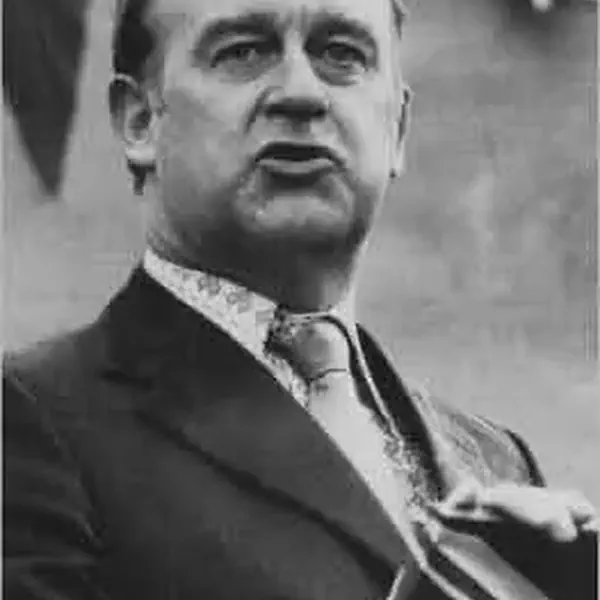
William Craig, Unionist Politician, Is Born
December 02, 1924
William “Bill” Craig (2 December 1924 – 25 April 2011) was a Northern Irish politician best known for forming the Unionist Vanguard movement.
William Craig, the Northern Irish unionist politician, was born on December 2, 1924. He played a significant role in Northern Ireland’s politics during a turbulent period, particularly in the context of the civil rights movement and the Troubles.
Unionist Background
- William Craig was a staunch unionist, advocating for Northern Ireland’s continued union with the United Kingdom.
Political Career
- Craig was a member of the Ulster Unionist Party (UUP) and later joined the Vanguard Unionist Progressive Party (VUPP), a more hardline unionist group.
The Unionist Vanguard movement, or simply Vanguard, was a political movement in Northern Ireland that emerged in the early 1970s. It was associated with hardline unionism and opposition to perceived threats to Northern Ireland’s status as part of the United Kingdom.
Role in the Civil Rights Movement
- During the early stages of the civil rights movement in Northern Ireland in the late 1960s, Craig was initially supportive of some civil rights issues.
- However, as tensions escalated, he became associated with more conservative and anti-civil rights positions.
Vanguard Movement
- William Craig played a key role in the establishment of the Vanguard Unionist Progressive Party (VUPP) in 1972. The party emerged as a response to perceived threats to unionist interests.
“Ulster Says No”
- Craig is often remembered for his participation in the “Ulster Says No” campaign against the Anglo-Irish Agreement in 1985. The agreement was seen by many unionists as a concession to Irish nationalist interests.
Later Years
- William Craig’s political influence waned in the later years of his life, and he faced personal and political challenges.
Death
- He passed away on April 25, 2011, at the age of 86.
William Craig’s political trajectory reflects the complexities and challenges of Northern Ireland’s political landscape during a tumultuous period. His involvement in unionist politics and opposition to certain civil rights initiatives contributed to the broader historical narrative of the region.